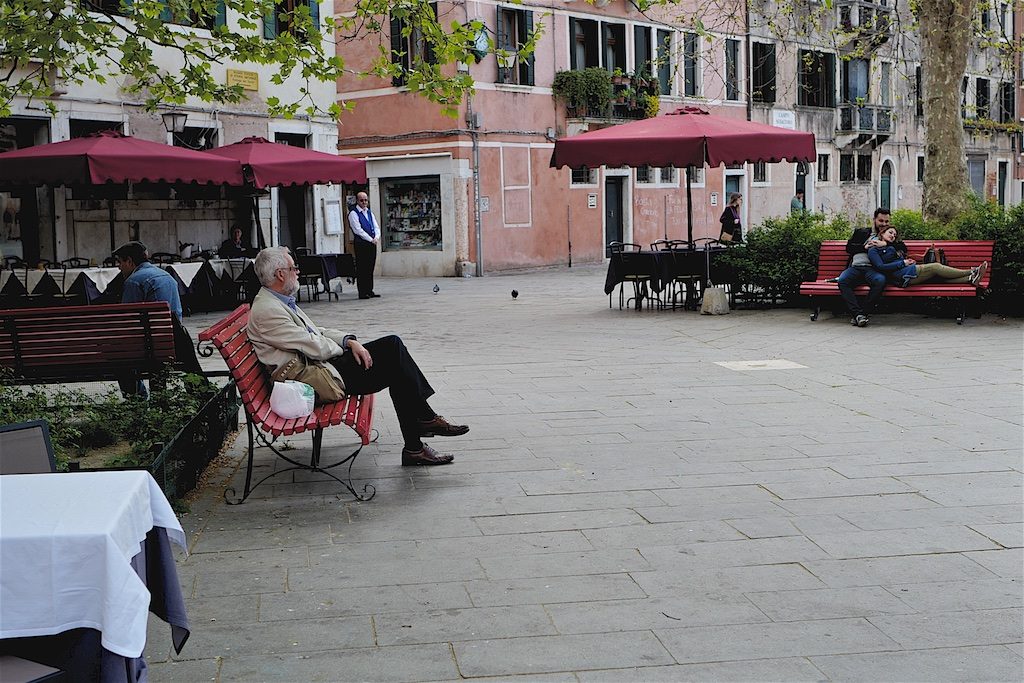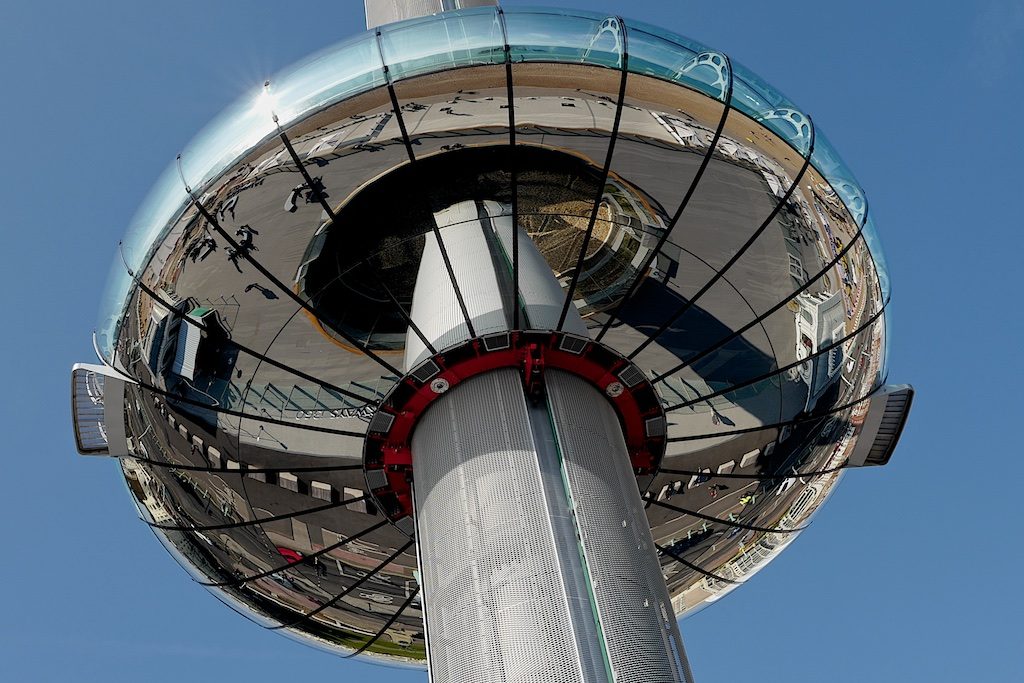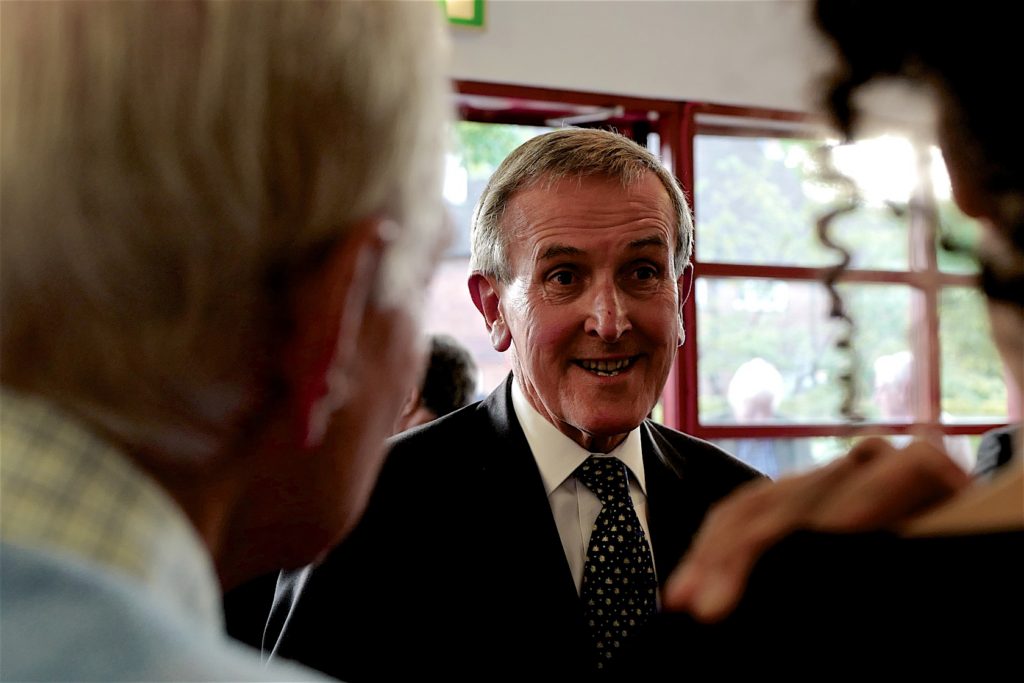Venice, lunchtime, off the tourist track.
How things change (and how corporate valuations are crazy)
Yesterday marked the 20th anniversary of Amazon’s IPO. It’s market cap stands today at $459.5 billion. Walmart, meanwhile stands at $229.5 billion. So Amazon is apparently twice as valuable as Walmart.
And yet according to Recode…
Walmart has well more than three times Amazon’s annual revenue, and five times its net income. But Jeff Bezos and Amazon have sold a vision of revenue growth over huge net income figures — and Wall Street has largely bought in.
Also: Amazon employs 341,500 people. Walmart provides jobs for 2.3 million.
Go figure.
Stages of denial on Fox News
- White House says that nothing happened.
- If it happened, it isn’t a big deal.
- Maybe it was imprudent, but it’s not illegal!
- Hilary was worse.
From Don Moynihan, @donmoyn
Trump updates his Russian friends on the latest intelligence
Now this you couldn’t make up. (Actually, given Trump, you could).
President Trump revealed highly classified information to the Russian foreign minister and ambassador in a White House meeting last week, according to current and former U.S. officials, who said Trump’s disclosures jeopardized a critical source of intelligence on the Islamic State.
The information the president relayed had been provided by a U.S. partner through an intelligence-sharing arrangement considered so sensitive that details have been withheld from allies and tightly restricted even within the U.S. government, officials said.
The partner had not given the United States permission to share the material with Russia, and officials said Trump’s decision to do so endangers cooperation from an ally that has access to the inner workings of the Islamic State…“This is code-word information,” said a U.S. official familiar with the matter, using terminology that refers to one of the highest classification levels used by American spy agencies. Trump “revealed more information to the Russian ambassador than we have shared with our own allies.”
WannaCry? Not really
If you’re overwhelmed by all the good, bad and simply awful reporting of the WannaCry ‘ransomware’ attack, here are links to two sane and well-informed pieces.
- Ross Anderson’s post on Light Blue Touchpaper — “Bad Malware, Worse Reporting”.
- Ben Thomson’s long and thoughtful post on his Strachery blog — “WANNACRY ABOUT BUSINESS MODELS”.
Also…
The Economist had a useful briefing a while back on the general topic of our chronic insecurity — “Computer security is broken from top to bottom”.
And of course it goes without saying that this whole debacle provides a salutary confirmation of the foolishness of demanding that there should be ‘backdoors’ in encryption ‘for government use only’. WannaCry was turbocharged by some software written by the NSA (which knew about the Windows XP vulnerability but didn’t tell Microsoft) to exploit it. The moral: if the government knows about a vulnerability, then other people will too. And some of them will be more even more unscrupulous.
I scream, you scream, we all scream for icecream
The long reach of Thomas Piketty
Interesting and thoughtful survey article by Marshall Steinbaum in the Boston Review on the strangely cool response of the economics profession to Piketty’s magnum opus, Capital in the Twenty First Century. Conclusion:
So where does that leave us, and specifically, where does it leave Capital in the Twenty-First Century, three years after its publication? It seems strange, perverse even, to say that its influence has been “quiet” when it has had great influence on public debate. But what this tour of the landscape of academic economics tells us is that, despite its hostile reception, Piketty’s influence, and that of this book in particular, continues to grow in the academic realm and is not likely to wither and die anytime soon—much as that might pain the harshest critics or the many more who have kept their distance.
For the latter, unfortunately, it is all too easy to keep looking the other way. It is increasingly possible to have a comfortable and rewarding life as a professional economist and never even consider the broad issue of inequality or the controversial explanations for and consequences of it that Piketty offers. Social norms used to require economists to at least take on broad public sentiment and to consider the issues of the day when setting their agendas, but the amount of money available for economics research and teaching has never been higher, no matter the esteem (or lack thereof) in which economists are held by the public. High officials in government, in corporate boardrooms, in courtrooms, and in university administrations, alumni bodies, and boards of trustees still want to hear what economists have to say (or at least to make a point of ostentatiously seeking out their advice and approval), and to have that approval validated in public.
All of which avoids the crucial question: are we actually doing or saying anything to make the economy serve the people who inhabit it? Economists could very easily spend their individual and collective lives avoiding that question as the economy crumbles around them, with Piketty’s book serving as little more than a cry in the wilderness. Right now, there is no assurance it won’t end that way, but by reading between the lines, my suspicion—and hope—is that Piketty is not one in a series of pop–social science fads. Rather, his work on inequality is an agenda-setting and generation-marking intellectual achievement, potentially as explosive (albeit with a longer fuse) in academia as it has been outside of it.
Vive la France! (For the time being)
This morning’s Observer column:
The two biggest lessons of 2016 were the discovery of how social media could be used for “voter suppression” and how the open web could be “weaponised” by the “alt-right” to pollute the public sphere. The conventional wisdom that Trump did not have a data operation was mistaken. He did have a “digital operations division” based in San Antonio with about 100 programmers, web developers, network engineers, data scientists, graphic artists, ad copywriters and media buyers. Their main approach seems to have involved using social media and other data to identify Democratic voters in swing states who were unenthusiastic about Clinton and to target them with messages likely to reduce the likelihood that they would vote for her. On other words, to engage in data-driven vote suppression.
The other insight of 2016 was provided by Jonathan Albright’s revelations of the extent of the far right’s online ecosystem and its ingenuity in exploiting YouTube and other legitimate sites to disseminate fake news and conspiracy theories. In doing this, the movement exploited both the business models of Google and Facebook, which depend on increasing “user engagement” (ie sharing, likes, links), and human psychology (which seems to find fake news more interesting and “shareable” than more sober, reliable information).
It is now surmised that the Brexit campaign in the UK may have been a dry run for these techniques and we know that they were deployed in France, presumably to increase the chances of a Le Pen victory…
Returning to earth
Neil McGregor
Neil McGregor, former Director of the National Gallery and, later, the British Museum and now Inaugural Artistic Director of the Humboldt Forum in Berlin gave the tenth ST Lee Lecture in Wolfson tonight. His topic was “State, Faith, Violence: case studies in the coercion of belief”, and it was a riveting and deeply depressing account of humanity’s capacity for persecution of ‘the other’. He’s a terrific lecturer, with an unhurried and enthralling style. But then, if you’ve heard or read his History of the World in a Hundred Objects, you will know that.
I’m pleased with this portrait, which really captures him as he is. Bigger size here.



